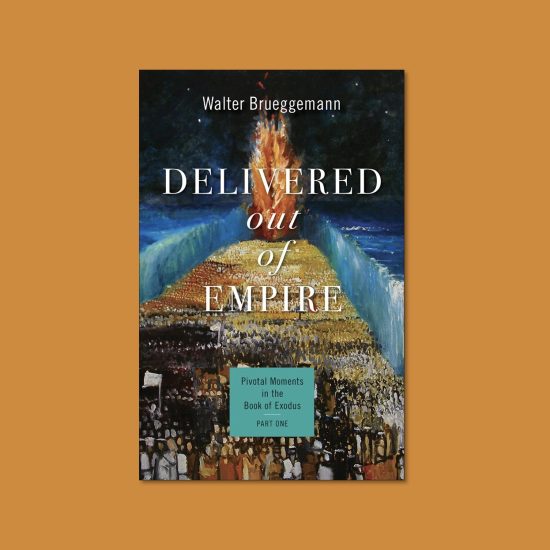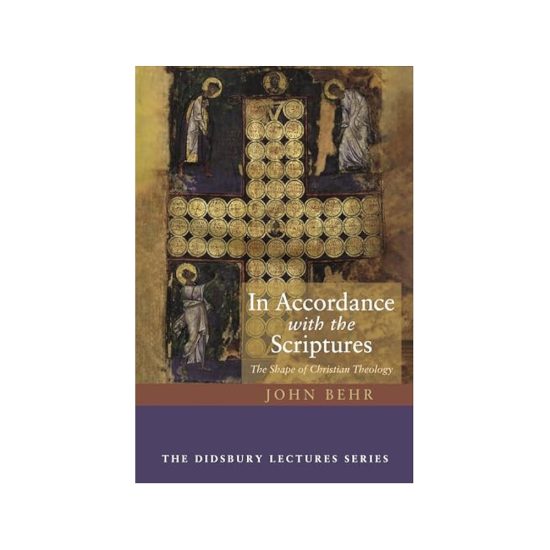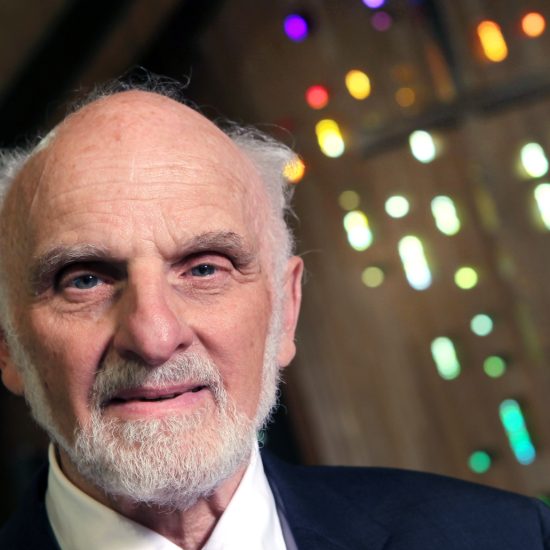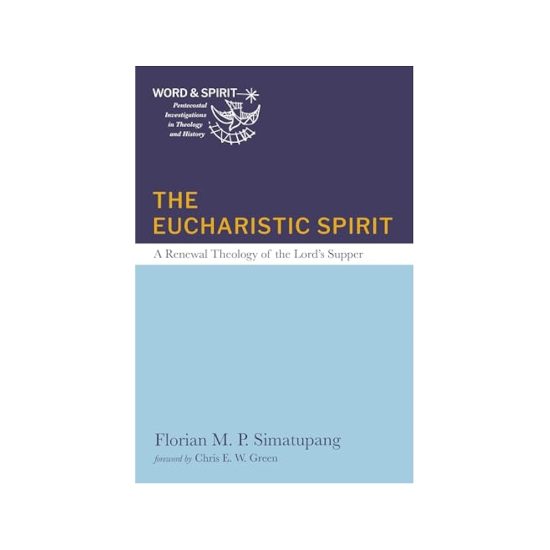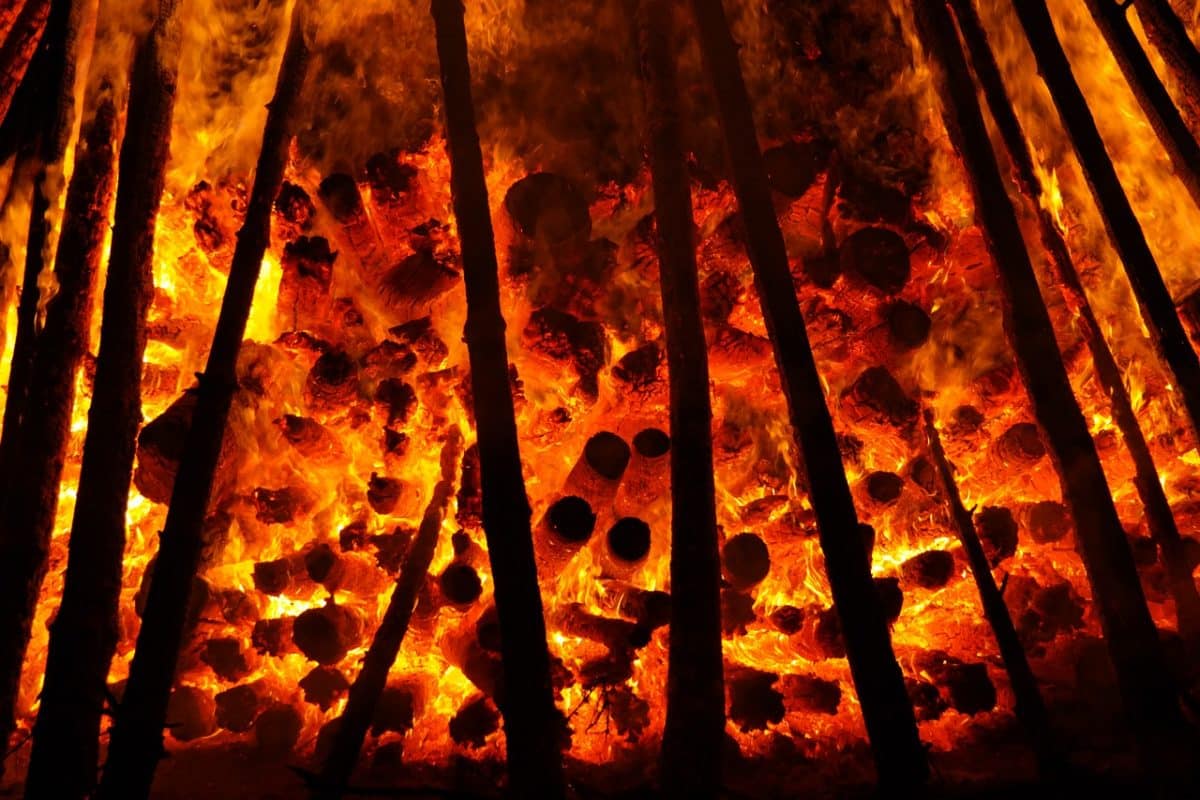
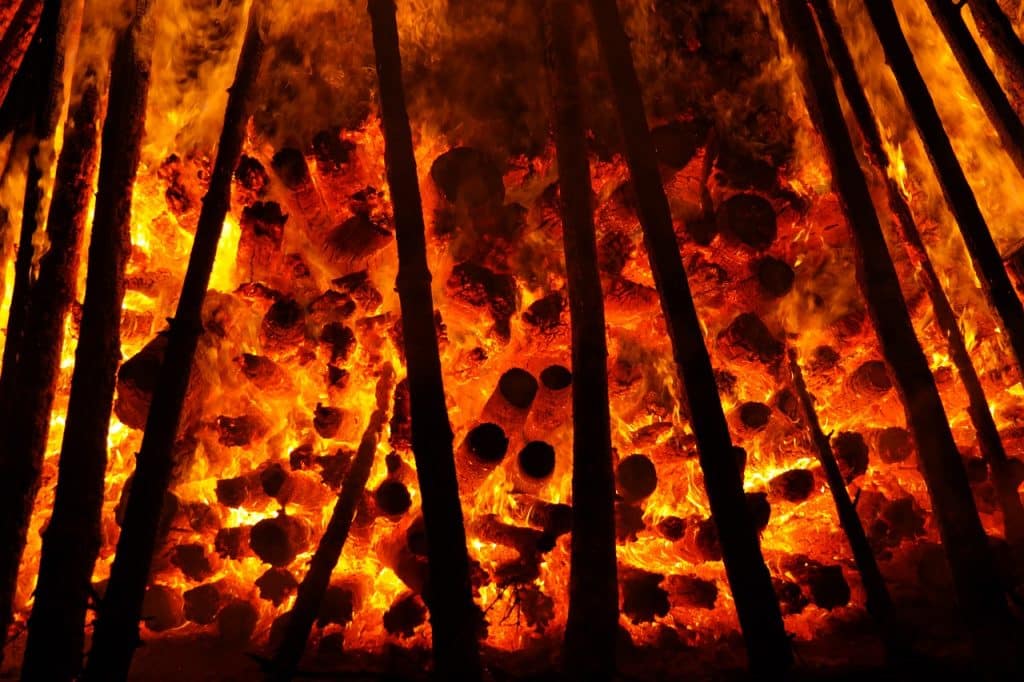
A 2018 study by researchers at Baylor University found that people who believe in harsher versions of hell are surer they are not going to hell. Image by Hans Braxmeier from Pixabay
When disagreements arise over the concept of hell, some Christians seem quick to fight like, well… Popular evangelical author Rob Bell learned this after he penned his 2011 book “Love Wins: Heaven, Hell and the Fate of Every Person Who Ever Lived.” Many of his former fans denounced the work. Perhaps most famously and succinctly, John Piper, a popular Reformed author who pastored Bethlehem Baptist Church in Minneapolis, Minn., tweeted, “Farewell Rob Bell” as if issuing some sort of final apostolic judgment.
Many critics blasted Bell for supposedly adopting universalism, a belief that everyone will eventually be saved and in heaven. Bell does not actually use that term, though many Christians have pushed that perspective and point to several biblical passages as justification. His view might actually be closer to that of a Christian scholar still upheld in evangelical and other circles as a key defender of orthodox Christianity: C.S. Lewis.
At the end of Bell’s book, he recommends people read Lewis’s novel “The Great Divorce.” In that book, Lewis explores the afterlife through a deceased narrator who discovers a bus line connecting heaven and hell with people freely able to choose to move from one to the other. Those who make the trip to heaven must learn to put aside their wickedness and allow the ways of heaven to rework them. Those how stay in hell do so willingly, refusing to turn from their ways and yet making their own world of suffering, pain and joylessness.
“There are only two kinds of people in the end: those who say to God, ‘Thy will be done,’ and those to whom God says, in the end, ‘Thy will be done,’” Lewis’s narrator is told in the novel. “All that are in hell, choose it. Without that self-choice there could be no hell. No soul that seriously and constantly desires joy will ever miss it. Those who seek find. Those who knock it is opened.”
Not universalism, but also not the classical vision of eternal flames and anguished cries found in Dante’s “Inferno,” Michelangelo’s “The Last Judgment” or old ‘fire and brimstone’ revival sermons. With Jesus and the prophets giving much more attention to their present reality than the afterlife — and with no ability to test theories before dying — disagreements about hell have divided Christian theologians for centuries.
In the recent controversy surrounding Southwest Baptist University in Bolivar, Mo., firing religion professor Clint Bass for alleged misconduct as he attempted to oust colleagues for teaching ideas he called “irregular, deviant, aberrant or errant,” the issue that received the most attention in news coverage and on social media was the topic of hell. Professors at other institutions have been forced out over opinions about hell. The topic, it seems, allows little grace for reading the Bible differently.
Hell on Earth
While the issue of hell remains important for the age to come, it also impacts the present age as well. Kathryn Gin Lum, a professor of religious studies at Stanford University in Stanford, Calif., explored this influence in her 2014 book “Damned Nation: Hell in America from the Revolution to Reconstruction.” While recognizing and considering the sincere religious beliefs and motivations guiding various perspectives on hell, she also explores how proponents of their theories also justified their position as beneficial to their current time and the wellbeing of their community.
“The threat of hell influenced prescriptions for what it meant to be both a good Christian and a good American,” Lum explained. “Evangelical leaders who sought to establish moral hegemony over the new nation and its citizens did indeed argue, against their critics, that the threat of hell was necessary to ensure peace and virtue in the new republic. They maintained that nothing but hell could prevent people from committing murder or behaving licentiously, since even capital punishment would otherwise just usher them into oblivion or a better world.”
With comments that “tied the behavior of individuals to the welfare of the nation,” such rhetoric was often “extending the threat of hell from the personal to the political.” In a nation without a sovereign king, the fear of hell worked to keep citizens in line. And, therefore, she noted those who preached about hell particularly feared the societal impact of universalism
As the U.S. grew, a belief in hell — particularly Calvinistic notions of some people destined for hell no matter what — aided efforts to eliminate “heathen” Native Americans or enslave “heathen” Africans. If those individuals could be assigned to hell on racial terms, then that impacted how the nation could treat those individuals on earth.
“Rigidifying racial classifications provided Euro-Americans with additional vocabulary for explaining their inability to covert the world,” Lum explained.
“Rather than attribute it to a failure of their own religious practice, they could believe that it was a failure of the other’s biology. The pseudo-science of 19th century ethnology coordinated well with missionary stalemates. If people did not get saved from the fires of hell, they were showing to be true to their species. And it was easier to dispossess or even kill those who seemed to have no possibility of redemption.”
This doctrine of hell was also used to try to keep enslaved peoples obedient. Lum explained that many sermons in the pre-Civil War South “warn of the hell that awaits not only those who do not believe but also those who misbehave in ways defined by masters claiming to speak for God.” Additionally, many such preachers also “told slaves that their condition in life mattered little with regard to their eternal salvation.” That is, enslaved persons should not complain about their hell on earth or else they might find themselves in eternal hell.
Of course, other preachers — both white preachers in the North and black preachers — argued those who enslaved other people were the ones clearly bound for hell. And some even pointed to the Civil War as God’s hellish punishment on the nation for the sin of slavery.
Baptists Split on Hell
As with most theological topics, a wide diversity of opinions exists among Baptists on the nature of hell. In fact, Baptist theologians and preachers — much like church leaders in the first centuries after Jesus — have long been found in the various hell camps. These views range from universalism to eternal conscious punishment to annihilationism (belief that the wicked cease to exist) to holding a temporary Hell kind of like purgatory to the view held by Lewis. And the disagreements continue on other hellish topics, such as whether or not Jesus descended into hell between the crucifixion and the resurrection.
Although Lum’s book does not look at doctrines about hell and current sociopolitical issues, perhaps today’s climate is ripe for study. Surveys by the Pew Research Center show that over the past two decades, the number of Americans who believe in a hell “where people who have led bad lives and die without being sorry are eternally punished” has dropped from 71 percent to 58 percent. Even among Christians the belief in hell is not unanimous as just 70 percent of all Christians told Pew they believed in it — and just 82 percent of evangelicals. (Belief in a heaven remains much higher across all groups.)
A 2018 study by researchers at Baylor University found that people who believe in harsher versions of hell are surer they are not going to hell. The study also found that more religious individuals and those who believe in human free will were less likely to be anxious about ending up in hell.
The declining support for a literal hell gets some preachers hot. Among some who hold the view of hell as a place of eternal conscious torture, any other theory or questioning of their view is a significant theological error worthy of fiery condemnation. Al Mohler, president of Southern Baptist Theological Seminary in Louisville, Ky., argued — like some Calvinistic preachers in the early years of the U.S. that Lum studied — that giving less attention to the doctrine of hell is a serious cultural problem, and faithful believers must stand for a literal, fiery hell in this doctrinal debate.
“The revision or rejection of the traditional doctrine of hell comes at a great cost,” he argued on his website. “Hell demands our attention in the present, confronting evangelicals with a critical test of theological and biblical integrity. Hell may be denied, but it will not disappear.”
Similarly, during a 2016 sermon at Southern Hills Baptist Church in Bolivar, Mo., on eternal punishment, Bass lamented that “hell really isn’t taken seriously in our culture today.” He argued that those who preach a perspective other than conscious eternal punishment lead to declining churches with “no life, no fiery Spirit of God.”
While some Baptists view the eternal conscious punishment theory a hill to die on, others find such hellish visions blasphemous about the nature of a loving God. Roger Olson, a theology professor at the George W. Truett Theological Seminary in Waco, Texas, likens his perspective to that of Lewis. Olson particularly criticizes the Calvinist idea of God creating some individuals just to damn them to eternal punishment in hell. He critiqued that theology in his 2011 book “Against Calvinism: Rescuing God’s Reputation from Radical Reformed Theology.”
“Calvinism makes it difficult,” he wrote, “to recognize the difference between God and the devil except that the devil wants everyone to go to hell and God wants many to go to hell.”

